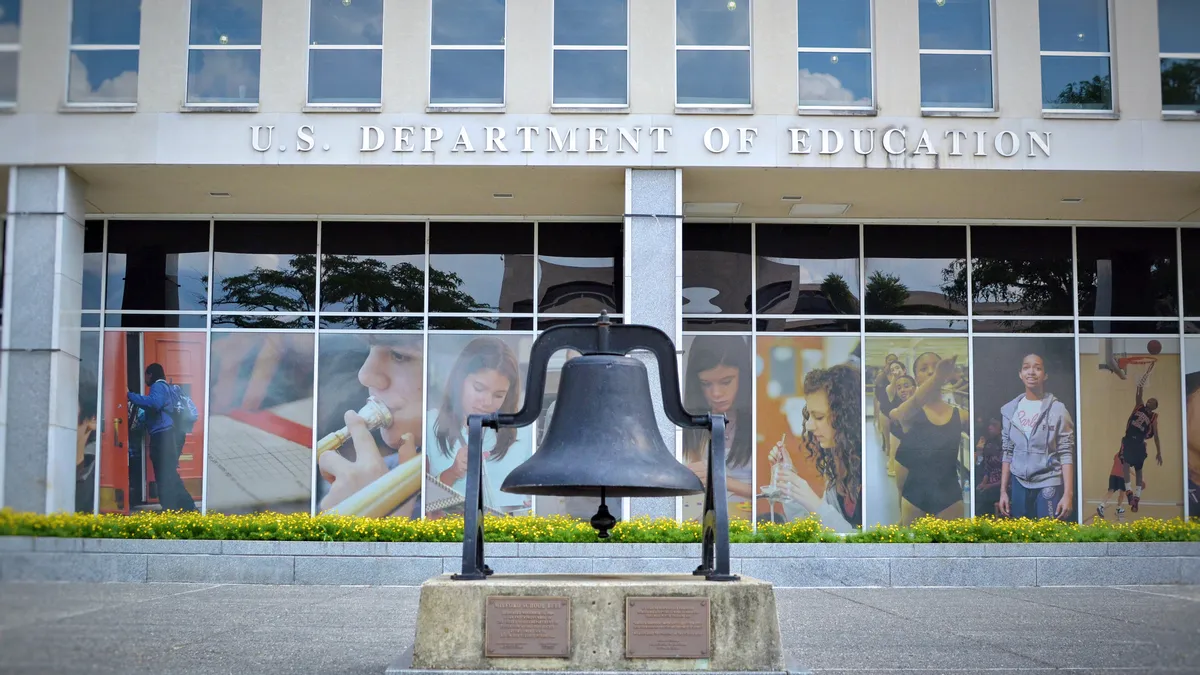Dive Brief:
- NC-SARA, the group overseeing how distance education is offered across state lines in most of the U.S., left several contentious policy changes unresolved at its board meeting last week.
- The organization — which controls the nation's only multistate reciprocity agreement for online learning — tabled proposals that could change how states can regulate distance learning activity within their borders.
- Several board members said they needed more time to review the proposals and their implications. The move follows a letter from several consumer protection groups last month contending that some of the proposals would weaken NC-SARA's standards.
Dive Insight:
Reciprocity agreements can make it easier for colleges to offer online education across state lines by removing the need to pursue separate authorization in each state in which they enroll students. California is the only state that doesn't participate in NC-SARA's agreement, so changes to the organization's policies would have far-reaching effects.
One of NC-SARA's tabled policy proposals intends to clarify the power states have to regulate the distance-learning activities of branch campuses located within their borders but operated by out-of-state institutions. The organization defines a branch campus as a site far from its parent institution that offers full programs of study.
To explain the current policy's intent, Jeannie Yockey-Fine, director for regulatory relations and policy support at NC-SARA, during the board meeting gave the example of a branch campus located in Georgia that's operated by a college based in Florida. In that case, Florida would have ultimate jurisdiction over NC-SARA-related activity within the branch campus in Georgia.
She added that host states are incorrect to have thought they had total jurisdiction over branch campuses within their borders, including all of their "SARA activity outside that state." Because the proposals had been tabled, NC-SARA declined to answer Education Dive's emailed questions asking for clarification about which students and activities host states will have jurisdiction over.
"It was determined that states and compacts need additional education and opportunities to participate in discussion regarding the tabled policies before we move forward with any Board action," an NC-SARA spokesperson said in a statement emailed to Education Dive. "Ultimately, we want to ensure any policy modifications will adequately serve states and institutions and protect students."
Some board members raised concerns during the meeting that states may view the proposal for regulation of branch campuses as a policy change rather than a clarification, as NC-SARA was positioning it. One feared states may even leave the agreement if it were carried out.
The discussion highlighted confusion about states' authority over branch campuses operating within their borders, said Clare McCann, deputy director for federal higher education policy at New America, a left-leaning think tank.
States that join the agreement don't want to cede all their authority to another state, McCann said. "If NC-SARA is actually saying that is the case when (states) join SARA — that they are giving up all of their rights and authority to any degree of oversight of institutions operating in their borders — I think that's a trade-off many states would not be willing to make."
This year, Maryland's membership in NC-SARA's agreement appeared in jeopardy after its legislature passed a bill that would bar for-profit colleges that enroll its residents from receiving more than 90% of their revenue from federal aid and military education benefits. NC-SARA argued that the legislation violated its policies, but Maryland regulators said the law will not apply to organizations participating in the interstate agreement.
The organization also tabled a proposal concerning how states handle student complaints against programs that branch campuses operate. If enacted, the policy would state that students can file complaints either in the state where the branch is located or the state where the institution is based.
But several higher education groups said in a letter to NC-SARA last month that this change wouldn't make it easier for students to file complaints because the state in which the parent institution of a branch is located would still ultimately be responsible for resolving complaints. Instead, they argued, states that host branch campuses should have the authority to resolve complaints filed against those branch campuses.
NC-SARA's board voted unanimously to continue to use federal financial composite scores to evaluate whether colleges can join the reciprocity agreement. The U.S. Department of Education uses the metric to gauge the financial health of an institution.
Because these scores lag by as much as two years, the impact of COVID-19 won't immediately affect them, NC-SARA said in a statement, adding that states are allowed to consider other financial information in their decision-making.










